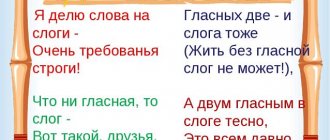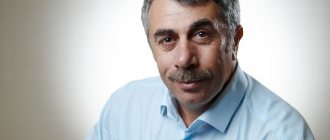It happens that at 2 or 3 years old, an active, intelligent child speaks only the first syllables of words or replaces them with onomatopoeia: bi (car), mya (ball), pe (plasticine). And when communicating with a child, adults play the game “Understand me if you can.”
Because the first sounds of words are similar and can mean several objects at the same time. For example, pe - or cookies, or a pencil case, or a song. Such a child can even construct an entire sentence, but in his own manner. And replace the missing parts of words with gestures or facial expressions. What is this physiology or pathology, and what should parents do, we will consider further.
Physiological reasons
It is considered normal if a child at two years old constructs phrases of 2 words. However, for some it takes another year. Truncating words at this age is not a pathology. Almost all babies go through this stage of speech development. Some pronounce the first, others - the last syllables. This is due to the gradual formation of parts of the brain that provide articulation.
In childhood, neural connections between cells and brain structures have not yet been formed, as a result of which physiological disorders of the speech apparatus are possible.
This is a type of norm, and the duration of this stage depends on the individual characteristics of the child’s development.
When parents study or play with their baby, there is no need to pronounce words letter by letter or highlight syllables. Otherwise, the process of speech development slows down, the child continues to speak in syllables rather than words. You need to talk to him the same way you would to an adult.
If the problem persists after age 3, you should be examined by a speech therapist to rule out a pathological cause for the disorder.
Son (2 years old) speaks only the first letters and syllables of words
Good afternoon.
My son recently turned 2 years old. The baby is very active, agile, smart, but doesn’t say very many words: mom, dad, grandpa, grandma, uncle, aunt, kaka, tsatsa, give, na, yes, where, gaga (caterpillar), giga (something gigantic) ), Maga (shop) and a few more. He either replaces the rest of the words (and he operates with all words of colloquial speech) with onomatopoeias: bu-u (car), chu-chu (locomotive), ding (alarm clock), ava (dog), hr-r (pig), rr -r (tiger), uf-uf (owl), k-k-k (cat), etc.; or names only the first letter or syllable: mya (ball), k (cat), te (shadows), so (sun), ma (small), p (plasticine), etc.
So my son and I have to play the game “Guess the Word”, because one initial letter can mean different words (for example, p - it can mean cookies, plasticine, soap bubbles, bring, sing, or something else).
It's getting ridiculous. One evening I sang lullabies to my son, but I couldn’t guess which one he wanted to hear. I start singing, and he responds with s-s (no, not this song). I ask him: about the Christmas tree? about a bear? about a cat? And in response I get all the same s-s. Then I tell him: “Well, tell me what you want to sing a song about.” He answered me: “G va,” which translated meant: a song about the “Blue Wagon.”
Another feature is that he can repeat almost any word after the speaker pronounces it syllable by syllable (and reacting quickly and pronouncing it quite clearly). For example, I say syllable by syllable (or letter) the word pharmacy (I say a, my son follows me with a; I say p, and he immediately repeats p, etc.). So, he even repeats phrases and sentences with ease and instantly, but only in such a unique syllable-by-syllable way.
He speaks in sentences (but only in his own peculiar manner), but it is clear that he is already constructing sentences in his head and is trying to convey his thoughts in words and in facial expressions and gestures. Can say something like: mom a (mom is not there), dad where?, mom de pfu (mom spends money), dad b (dad is shaving), etc.
I note that the passive vocabulary is quite large. He recognizes, shows and names (with the first letter or syllable) animals, clothes, furniture, dishes, toys, etc.; says which of the animals does what (ava, meow, be, me, mu, etc.), etc. Recognizes and names 22 letters of the alphabet individually and in the structure of any word; knows and names 12 colors in his own unique manner (si (blue), be (white), ka (red)), etc.; Knows and shows geometric shapes (circle, square, rectangle, oval, triangle, pentagon), distinguishes antonymic concepts (small-big, close-far, high-low, etc.), knows where is left and where is right.
Since childhood, I have been singing different songs to my son, reading poems in books and by heart. Together we sculpt with plasticine, glue with glue, lace with shoelaces, spin a top with our fingers, unscrew different caps, draw with paints, crayons, felt-tip pens, pencils, etc.
At one time I studied with my son using the Glen Doman method. Now, from the age of 1 year 10 months, we go to classes at an early development school once a week (based on Zaitsev’s method). And, of course, we study (playing) at home using various books and manuals for the development of the intelligence of children of primary preschool age. My son enjoys playing with blocks, construction sets, logic cubes, pyramids, etc. He plays ball and hide and seek with his dad, hides and looks for toys himself, blows soap bubbles, loves to play around, understands jokes and even tries to joke himself.
I get great pleasure from communicating with my son, I rejoice at his every victory, even the most insignificant, knowing with what difficulty it was given to him. But some “comrades” from among our relatives simply harass us with constant reproaches and conversations about how “the child speaks very little and poorly, while other children of his age already recite poetry by heart. But his mother (i.e., me) is a philologist by training.” I defend my son, explaining that the development of each child is individual, but they continue to repeat the same thing.
Please tell me, can such speech of a two-year-old child be considered normal, and do we have a delay in speech development? Don't get me wrong, but I wouldn't want to take my baby to a speech therapist just yet. Perhaps I myself can do something for my child. Please help me translate all these syllable-by-syllable pronunciations and just individual initial letters and syllables into whole words. Perhaps you have encountered similar cases in your practice, and you can suggest some special exercises, tasks, games that I can do myself.
I thank you in advance for your attention, for the time spent on us and for the help that (I have no doubt) you can provide us.
Sincerely, Julia.
Speech disorders
Incorrect articulation can be considered normal in children under 2-3 years of age. If speech defects are persistent, speech therapy intervention is required. In case of pronounced pronunciation disorders, the presence of a severe speech disorder should be excluded.
Parents should not make a diagnosis on their own, but it is important to know about the most common pronunciation disorders in order to seek help from a speech pathologist in time and quickly cope with the disorder. If the defect becomes persistent, it will be more difficult to eliminate it. In speech therapy, it is customary to classify speech disorders into 4 types:
- incorrect articulation;
- pathologies of rhythm and tempo of pronunciation;
- defects caused by hearing problems;
- GSD (general speech underdevelopment) or loss of existing skills.
Correction of speech regression
If the baby has stopped babbling or speaking, then you need to immediately figure out the cause of the illness. First of all, you should visit an appropriate specialist. If the baby suddenly stops talking due to stress, then an examination by a psychologist will be required. If there are no apparent reasons, you should visit a neurologist. A child who has stopped speaking due to aphasia first needs treatment for the underlying disease.
The child may be prescribed:
- medications;
- surgery;
- mechanotherapy and physiotherapy;
- speech therapy massage and exercise therapy.
For children who do not speak, speech therapy sessions are also prescribed. Teachers help the child restore speech. Writing and reading skills are developed (if necessary). If the child has stopped speaking, then correctional classes with a neuropsychologist and/or speech therapist should begin as early as possible. This can be done at the NEAPL Center for Speech Therapy and Psychology. Experienced specialists will identify the cause of speech regression and, if necessary, refer you to specialized doctors or select an effective corrective program.
Incorrect articulation
This group includes dyslalia, or tongue-tiedness, and dysarthria. Dyslalia manifests itself in the fact that the baby does not pronounce all the syllables of a word or replaces them with others. It is divided into mechanical and functional. In the first case, articulation problems arise due to improper development of the mouth or nasopharynx. This disorder is comorbid - it is accompanied by nasality, slowing or accelerating the rate of pronunciation. Functional impairment is associated with a weakening of nerve impulses transmitted by brain structures.
For children 2-3 years of age, the pronunciation of the first or last syllables of a word is considered a conditional norm. In speech therapy there is even a concept of “physiological dyslalia.” If the problem persists longer, consultation with a speech therapist is necessary.
Dysarthria or slurred speech may also be accompanied by the pronunciation of parts of a word. This pathology develops against the background of injury or inflammation in the structures of the brain, when systemic blood flow is disrupted. In this case, coordination of movements is impaired, swallowing is difficult, and involuntary salivation is possible. The range of movements of the articulatory apparatus is limited. The voice becomes quiet or disappears completely. The child pronounces words slowly, making uneven intervals.
Year two
At the beginning of the 2nd year of life, the child begins to copy the speech of others and his vocabulary rapidly expands: by the age of 1.5 years it is about 50 words. The baby already pronounces, albeit not always clearly, almost all vowels and some consonant sounds: [d], [t], [b], [p], [k], [g], [m], [n], [x], [f], [v]. In this case, hard consonants can be pronounced as paired soft ones (“dai” - “dyai”), and full “versions” of words are replaced by onomatopoeias (“chicken” - “ko-ko”, “cat” - “meow”) or “truncated” up to 1-2 syllable variations (“cube” - “ku”, “dog” - “baka”). At the same time, the first proposals begin to appear. Speech becomes more meaningful, gradually replacing facial reactions and gestures.
By the age of two, a child’s active vocabulary already contains up to 400 nouns and verbs, from which he learns to construct simple sentences (of 3-4 or more words). The baby correctly pronounces all vowel sounds and the lightest consonants; interrogative and exclamatory intonation already appears in his speech. The correct pronunciation of sounds often depends on their location in the word: in 2-syllable words with open syllables, all sounds are pronounced correctly, but in more complex words, the baby can replace or skip individual sounds or entire syllables. Words that contain 2 or more consonants in a row also cause difficulty. At the same time, correct sound pronunciation is not constant: one time the baby can pronounce a sound correctly, and the next time - incorrectly. This is quite normal for this age.
Pathologies of tempo and rhythm of speech
Sometimes the baby “swallows” parts of the word due to the accelerated rate of speech. If the pronunciation is too slow, he, on the contrary, stretches words into syllables, sometimes missing some of them. Pauses between syllables or words may increase. Speech therapy exercises and rhythmic exercises will help to cope with the defect.
The acceleration of the pace is due to overexcitement and increased anxiety. Therefore, therapy is aimed at reducing excitability - physiotherapy, homeopathic sedatives.
Children are prone to imitation. Therefore, if there are relatives in the family with a similar defect, he should also fight the violation. Otherwise, constant relapses will occur.
This group of speech disorders also includes stuttering, when a child cannot say a whole word, constantly repeating individual syllables. There are two forms – reactive and developmental stuttering. The latter occurs when parents teach difficult to pronounce words to a child whose articulatory apparatus has not yet formed. The reactive form is a reaction to stress - fear, long-term illness, conflicts between parents. This disorder is accompanied by neurotic symptoms - decreased or lack of appetite, sleep disturbances, nightmares, enuresis.
In what cases do you need to consult a speech therapist?
- The child does not develop phrasal speech; his vocabulary contains only a small set of babbling or distorted words.
- The baby does not use speech as a means of communication with others. He can speak some words, but they are pronounced inappropriately to the subject, object or situation.
- You are alarmed by the timbre of the child's voice (squeaky, rough or nasal tone of voice).
- The baby stutters.
- You notice an uncharacteristic pronunciation of a number of sounds - during a conversation, the tip of the tongue protrudes between the teeth, the cheeks swell, causing speech to take on a lisping or “squelching” character.
Defects caused by hearing problems
Even a slight decrease in hearing acuity negatively affects articulation. If a small child has hearing loss, speech development is impossible. Children who were born deaf and lost their hearing before the age of 3 will remain mute without special training. At the same time, the speech apparatus is not damaged, and intelligence is within normal limits.
Decreased or absent hearing is not related to mental abilities. Many children can attend regular schools. But for this you need to contact a speech therapist as early as possible and begin correction.
A child speaks little at 3 years old: how to teach him to talk
In addition to all of the above actions, parents of a preschooler should contact specialists who deal with these types of problems:
- A speech therapist is a specialist who corrects speech deficiencies (inability to pronounce certain sounds, stuttering, burr, lisp).
- A defectologist specializes in children with various developmental disabilities. It deals with the correction of the backlog without deep intervention, or with compensation - making up for the lack of lunch.
If serious deficiencies in speech development are identified, the following studies should be carried out:
- hearing testing;
- speech understanding examination;
- examination of gross and fine motor skills;
- examination of articulation organs;
- vocabulary assessment;
- assessment of the grammatical structure of speech;
- examination of phrasal speech;
- examination of the syllabic structure of a word.
For your information! Based on the results of the examination, the specialist makes a conclusion on the form and degree of speech development delay, and draws up a clear plan for correcting or compensating for this deficiency.
Prognosis and prevention
If your baby was talking and then suddenly fell silent, then don’t despair. In most cases, the prognosis is very favorable. Timely correction allows you to eradicate the pathology. The exception is cases when the baby has stopped speaking words due to severe damage to the central nervous system or Landau-Kleffner syndrome.
To prevent a child from becoming silent, parents must pay special attention to his emotional state. At the first signs of stress, it is better to contact a psychologist. The child should be surrounded with care and helped to develop his speech. However, no preventive measures have been created to prevent aphasia. The only thing parents can do for their child is to undergo timely medical examinations, prevent traumatic brain injuries and severe neuroinfections.







